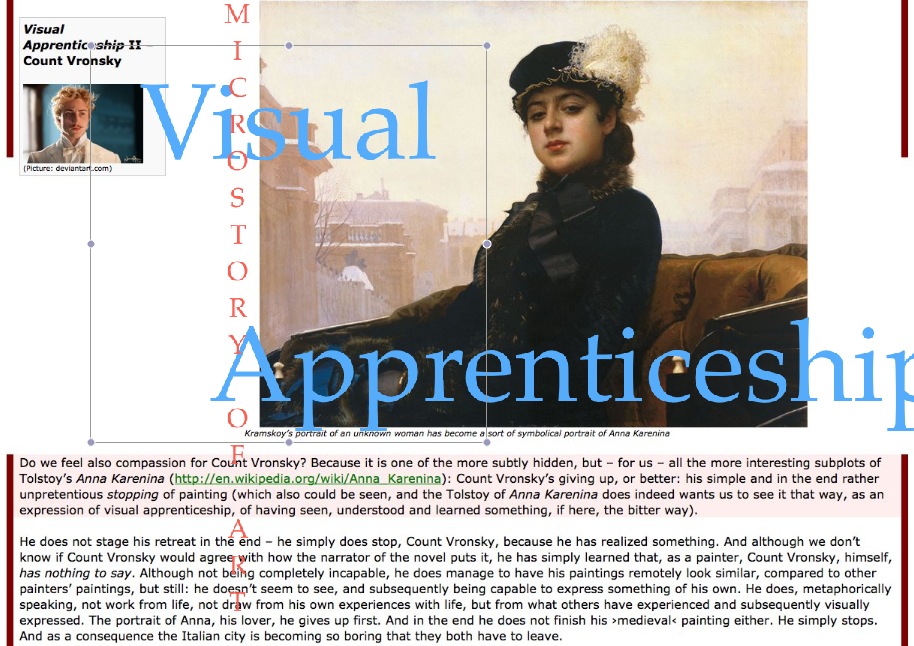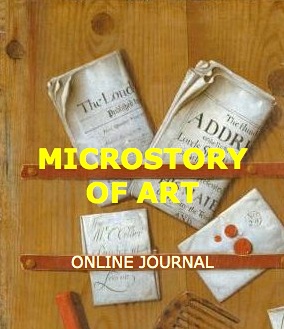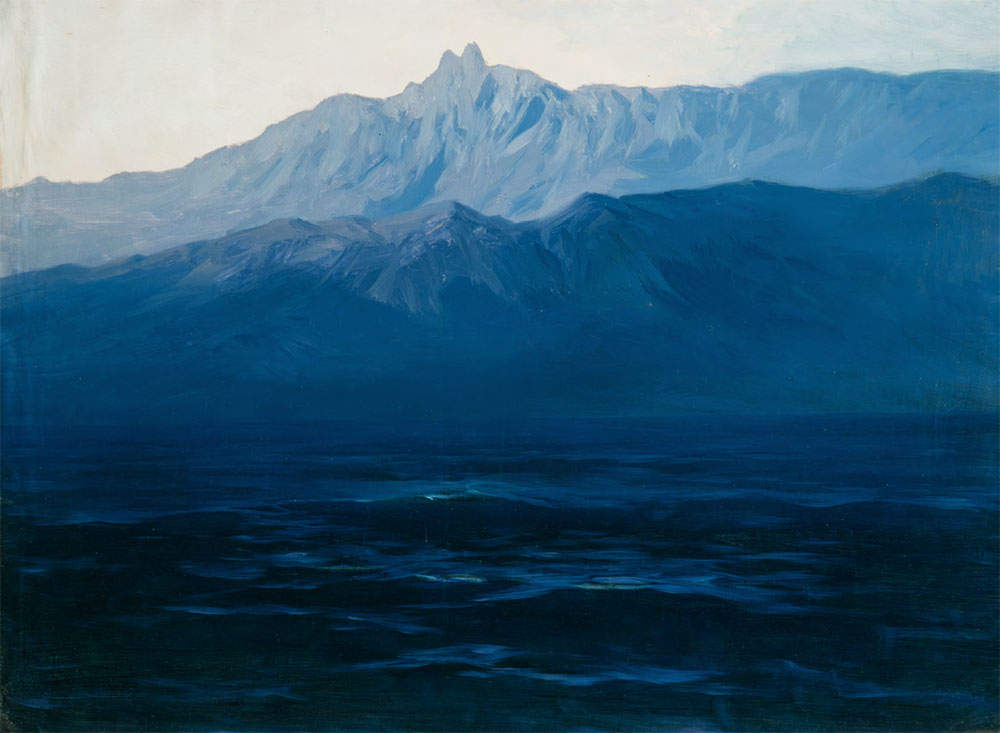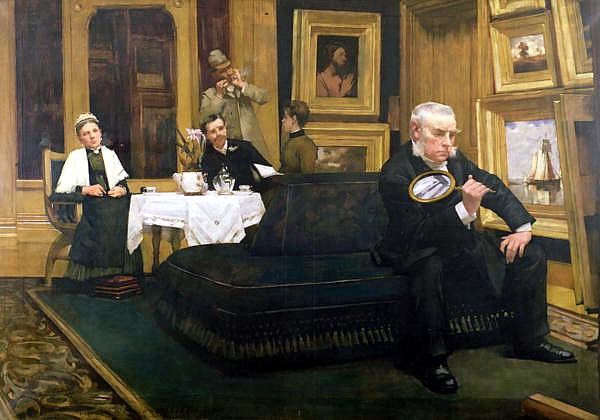M
I
C
R
O
S
T
O
R
Y
O
F
A
R
T
........................................................

NOW COMPLETED:

........................................................
MICROSTORY OF ART
ONLINE JOURNAL FOR ART, CONNOISSEURSHIP
AND CULTURAL JOURNALISM
........................................................
INDEX | PINBOARD | MICROSTORIES |
FEATURES | SPECIAL EDITIONS |
HISTORY AND THEORY OF ATTRIBUTION |
ETHNOGRAPHY OF CONNOISSEURSHIP |
SEARCH

........................................................



 >MICROSTORIES
>MICROSTORIES
- Richard Serra
- Martin Scorsese
- Claude Simon
- Sunshine
- Werner Herzog
- The Creation
- Marcel Duchamp
- Nino Rota
- Wölfflin and Woolf
- Hansjörg Schneider
- Kraftort Arkadien
- Visual Biography
- Schlaraffenleben
- Die Geisteswissenschaften
- The Voyeur
- Buzzword Sustainability
- Paul Verlaine
- Tao Yuanming
- New Beginning
- Seneca
- Still Lifes
- Charles Baudelaire
- Frédéric Chopin
- The Art History of Sustainability
- Wang Wei
- Solarpunk
- Historians of Light
- Lepanto
- Renaturalization
- Plates
- Snow in Provence
- Learning to See
- Picasso Dictionaries
- Peach Blossom Spring
- Picasso Tourism
- Tipping Points
- Sviatoslav Richter
- Weather Reports
- Treasure Hunt
- Another Snowscape in Picasso
- Picasso in 2023
- Dragon Veins
- The Gloomy Day
- The Art of the Pentimento
- Reforestation
- The Status of Painting
- Emergency Supply
- Punctuality
- Watching Traffic
- Zhong Kui
- How Painting Survived the 1990s
- Confirmation Bias
- Sustainability and Luxury
- Garage Bands
- Picasso and Artificial Intelligence
- Eyes of Tomorrow
- Picasso in 2023 2
- Gluing Oneself to Something
- Suburbia
- Bamboo
- Sustainability and Carpe Diem 1
- Interviews with Bruegel
- Sustainability and Carpe Diem 2
- Coffee & Sugar
- Bamboo 2
- Picasso in 2023 3
- Sustainability and Carpe Diem 3
- Cherry Orchard
- Old Magazines
- Chance
- Nick Drake
- Harlequin
- The Smartphone & the Art Book
- Atlas Syndrome
- The Kitchen
- Atlas Syndrome 2
- Consideration
- Tori Amos
- School
- Orchard Auctioning Day
- The Hundred Years’ War
- Sócrates
- Chameleon
- Nefertiti Bust
- Picasso as a Computer
- Sunflowers
- Philemon & Baucis
- Ode to the Radio
- Childhood
- Wimmelbild
- Restitution
- Nick Drake 2
- Wishful Thinking
- Sundays
- The Independent Scholar
- September
- The Fisherman by Pirosmani
- Microadventure
- Sociology
- Salvator Mundi
- Chillon
- Appassionata
- Amber
- Homer
- Berlin
- Planet Walk
- Improvisation
- Seeing Picasso
- These Nice Kids
- Robber
- The One
- The Sea Turtle
- Zoo
- Through the Hush
- Wunderkammer
- I Do Not Seek, I Find
- Shopping Mall
- Food Hamper
- The Secretary
- This Gate
- Nor Rainy Day
- House on a Hill
- Beautiful Island
- Second-hand Bookstore
- Flat
- Slap in the Face
- Serra, Wenkenpark
- Apologies
- The Bells
- Nordmann Fir
- Picasso Wanting To Be Poor
- Picasso, Pirosmani
- A Brief History of Sculpture
- 24 Sunsets
- Rusty Phoenix
- Glove
- Wintry Stanza
- A Song
- Like A Beatle
- Catching An Orange
- Solar Bees
- Permaculture

 >FEATURES
>FEATURES
- Van Gogh On Connoisseurship
- Two Museum’s Men
- Ende Pintrix and the City in Flames
- Titian, Leonardo and the Blue Hour
- The Man with the Golden Helmet: a documentation
- Un Jury d’admission à l’expertise
- Learning to See in Hitler’s Munich
- Leonardo da Vinci and Switzerland
- The Blue Hour Continued
- The Blue Hour in Louis Malle
- Kafka in the Blue Hour
- Blue Matisse
- Blue Hours of Hamburg and LA
- A Brief History of the Cranberry
- The Other Liberale in the House
- The Blue Hour in Raphael
- Who Did Invent the Blue Hour?
- Monet on Sustainability
- Velázquez and Sustainability
- The Blue Hour in Guillaume Apollinaire
- Van Gogh on Sustainability
- The Blue Hour in Marcel Proust
- Picasso and Sustainability
- The Contemporary Blue Hour
- The Blue Hour in 1492
- The Blue Hour in Hopper and Rothko
- Hopper and Sustainability
- The Blue Hour in Ecotopia
- The Hour Blue in Joan Mitchell
- Explaining the Twilight
- The Twilight of Thaw
- The Blue Hour in Pierre Bonnard
- Explaining the Twilight 2
- Picasso on Stalin
- Rubens on Sustainability
- The Salvator Mundi in Bruegel and Rubens
- The Blue Hour in Leonardo da Vinci and Poussin
- The Blue Hour in Rimbaud
- Faking the Dawn
- Frost and Thaw in Ilya Ehrenburg
- Picasso, Stalin, Beria
- Picasso, Solzhenitsyn and the Gulag
- Shostakovich on Picasso
- Hélène Parmelin in 1956
- Historians of Picasso Blue
- Picasso Travelling to Moscow 1
- The Blue Hour in Caravaggio
- Picasso Travelling to Moscow 2
- Picasso, the Knife Game and the Unsettling in Art
- Some Notes on Leonardo da Vinci and Slavery
- Picasso Moving to the Swiss Goldcoast
- The Blue Hour in Camus
- The Blue Hour in Symbolism and Surrealism
- Caspar David Friedrich in His Element
- Exhibiting the Northern Light
- Caspar David Friedrich in His Element 2
- Robert Schumann and the History of the Nocturne
- The Blue Hour in Robert Schumann
- Caspar David Friedrich and Sustainability
- The Twilight of Thaw 2
- Multicultural Twilight
- The Blue Hour in Anton Chekhov
- The Blue Hour in Medieval Art
- Twilight Photography
- The Blue Hour in Bob Dylan
- Iconography of Optimism

 >SPECIAL EDITIONS
>SPECIAL EDITIONS
- Visions of Cosmopolis
- Mona Lisa Landscapes
- Turner and Ruskin at Rheinfelden
- Painters On TV & On TV
- Spazzacamini in Art
- A Last Glance at Le Jardin de Daubigny
- The Experimental Cicerone
- A Dictionary of Imaginary Art Historical Works
- Iconography of Blogging
- Begegnung auf dem Münsterplatz
- Cecom
- Das Projekt Visual Apprenticeship
- Those Who See More
- A Fox on Seeing with the Heart
- Sammlung Werner Weisbach
- Daubigny Revisited
- Some Salvator Mundi Microstories
- Some Salvator Mundi Afterthougths
- Some Salvator Mundi Variations
- Some Salvator Mundi Revisions
- A Salvator Mundi Questionnaire
- A Salvator Mundi Puzzle
- Unknown Melzi
- Francis I and the Crown of Charlemagne
- From Amboise to Fontainebleau
- Drones Above Chambord
- Looking Back At Conques
- Flaubert At Fontainebleau
- Images of Imperial Ideology
- The Chronicles of Santa Maria delle Grazie
- Seeing Right Through Someone
- Melzi the Secretary
- Eying Glass
- A Foil to the Mona Lisa
- A Renaissance of the Cartoon
- Sketching a Family Tree
- Venetian Variations
- A Brief History of Digital Restoring
- A Consortium of Painters
- Leonardeschi and Landscape
- A Christ in Profile
- Learning to See in Spanish Milan
- A History of Gestures
- Leonardo and Josquin
- A Renaissance of the Hybrid
- Suida and Heydenreich
- The Watershed
- Three Veils
- From Beginning to End
- Connoisseurship of AI
- Twilight and Enlightenment
- The Blue Hour in Chinese Painting
- Dusk and Dawn at La Californie
- Iconography of Sustainability
- The Blue Hour in Goethe and Stendhal
- The Sky in Verlaine
- The Blue Hour in Paul Klee
- Iconography of Sustainability 2
- The Blue Hour in Charles Baudelaire
- From Bruegel to Solarpunk
- Some Salvator Mundi Documentaries
- Some More Salvator Mundi Monkey Business
- The Windsor Sleeve
- Brigitte Bardot’s Encounter with Picasso
- Art Historians and Historians
- A Salvator Mundi Chronicle
- The Salvator Mundi and the French Revolution
- The Fontainebleau Group
- The Encounter of Harry Truman with Pablo Picasso
- The Fontainebleau Group Continued
- The Windsor Sleeve Continued
- The Salvator Mundi in Early Netherlandish Painting 1
- Some Salvator Mundi Resources
- A New Salvator Mundi Questionnaire
- The Woman in Picasso
- The Yarborough Group
- Melzi, Figino and the Mona Lisa
- The Yarborough Group Continued
- A Salvator Mundi Global History
- The Salvator Mundi in Medieval Art
- The Salvator Mundi in Medieval Art 2
- The Salvator Mundi in Early Netherlandish Painting 2


 >HISTORY AND THEORY OF ATTRIBUTION
>HISTORY AND THEORY OF ATTRIBUTION
- The Mysterious »Donna Laura Minghetti-Leonardo«
- Assorted Demons of Connoisseurship
- Panofsky Meets Morelli
- Discovering the Eye of Sherlock Holmes
- Handling the Left-handed Hatchings Argument
- Visual History of Connoisseurship
- Alexander Perrig
- Connoisseurship in 2666
- What Postmodernity Has Done to Connoisseurship
- Dividing Four Fab Hands
- A Leonardesque Ambassador
- Test Cases in Connoisseurship
- A Raphael Expertise
- How to Tell Titian from Giorgione
- Louise Richter
- The Unique Property in the History of Connoisseurship
- An Expertise by Berenson
- The Book of Expertises
- An Album of Expertises
- An Expertise by Friedländer
- A Salvator Mundi Provenance
- How to Tell Leonardo from Luini
- An Expertise by Crowe and Cavalcaselle
- An Expertise by Bayersdorfer
- An Expertise by Hermann Voss
- An Expertise by Hofstede de Groot
- Leonardeschi Gold Rush
- An Unknown »Vermeer«
- An Expertise by Roberto Longhi
- An Expertise by Federico Zeri
- A Salvator Mundi Geography
- A Salvator Mundi Atlas
- The Bias of Superficiality
- 32 Ways of Looking at a Puzzle
- James Cahill versus Zhang Daqian
- Five Fallacies in Attribution
- On Why Art History Cannot Be Outsourced to Art Dealers
- On Why Artificial Intelligence Has No Place in Connoisseurship
- Salvator Mundi Scholarship in 2016
- Leonardo da Vinci at the Courts
- The Story of the Lost Axe
- The Last Bruegel
- A Titian Questionnaire
- On Where and Why the Salvator Mundi Authentication Did Fail
- The Problem of Deattribution

 >ETHNOGRAPHY OF CONNOISSEURSHIP
>ETHNOGRAPHY OF CONNOISSEURSHIP
MICROSTORY OF ART
ONLINE JOURNAL FOR ART, CONNOISSEURSHIP
AND CULTURAL JOURNALISM
........................................................

***
ARCHIVE AND FURTHER PROJECTS

1) PRINT


***
2) E-PRODUCTIONS


........................................................

........................................................

........................................................
FORTHCOMING:


***
3) VARIA

........................................................

........................................................

........................................................

........................................................

........................................................
***
THE GIOVANNI MORELLI MONOGRAPH

- The Giovanni Morelli Monograph
........................................................
MICROSTORY OF ART
ONLINE JOURNAL FOR ART, CONNOISSEURSHIP AND CULTURAL JOURNALISM
HOME
MICROSTORY OF ART
MICROSTORY OF ART
ONLINE JOURNAL FOR ART, CONNOISSEURSHIP AND CULTURAL JOURNALISM

Dedicated to School

(Picture: Bodoklecksel)
School
(21.8.2023) The song School by the band Supertramp opens with a mouth harp, as if we would embark to see a Spaghetti Western (in German: Italowestern). With wide panoramic landscape views, rough territories, close-ups of worn-out faces, and tragic memories coming back. But no, we go to school. And this is big opera, too. Actually it is probably the one big opera in life that never ends (in one’s lifetime), the reservoir of memories that have to do with hopes and fears, with cruelty, boredom, humiliation, desperation and all that, with love perhaps and hope for finding love, and we probably measure all that comes afterwards with what we have experienced in school. And a feel of slow motion, even of a lacking sense of time, is one of my memories, although reason might tell me that this particular time span in which I might have felt that has been rather short.
The song School by the band Supertramp is staged like a drama, like a mini-opera, and although it is not a song which is particularly convenient to be played on the piano, it is famous for its piano solo (or piano break). Actually the song is staged to reach this piano solo, an outbreak of unspeakable memories, sadness, desperation, perhaps, after which there is a clearing storm of aggressive emotions to finish this drama which is never finished.
1) On Sadness
It is interesting to note that the song School, whose main composer seems to be Roger Hodgson, is not a celebration of having learned the three chords at school, from a teacher, but a celebration of sadness. We will come to the question of how to treat one’s memories from school with fairness later, but the chords the song is built on, the harmonic pattern (A-Minor, E-Minor, E-minor, D-Minor; A-Minor, E-Minor, G-Major, D-Minor), is sad in itself, without being associated with a retrospective view on school. And with the three chords Roger Hodgson seems to have learned from a teacher I mean the very basic musical skills that allowed him to accompany a song on a guitar or a piano. And this might actually also be seen as the start of a remarkable career as a composer of songs.
But School definitely displays sadness. And the reason for this seems to be that the song is about not to have had the kind of upbringing one later wishes or imagines to have had. And the question here would be: are you really being fair about your present life? Or do you blame school for everything that went wrong, although you did learn the three chords at school?
Was there »dark sarcasm in the classroom« as Pink Floyd had it? No, it seems that, here, it was (and it is) about a retrospective view on school that diagnoses: I did not get what I would have needed, and this can never be changed, since time is sealed, and there is no going back to correct that.
Pink Floyd, by the way, with Another Brick in the Wall, the other song inspired by the English school system, staged and imagined a surreal defiant march, defined by a Nile-Rodgers-kind of rhythm guitar part, a defiant march of school children, against an Orwellian system of thought control. And these two influencal songs see and define school in various ways, but both songs are about school in retrospection, and it is interesting to think about how one did experiences these two influential songs while being at school. Was it that serious? Perhaps. But the experience was probably diverse, and perhaps one does find what one is looking for, in the deep well of one‘s memories, and if one did learn at least the three chords at school, one should remain a little cautious, afterwards, to be that critical about one’s upbringing.
2) The Piano Solo
I find the piano solo not that difficult to play today, but I remember that I found it difficult to play then (while being at school). And this makes a huge difference. It is not, I think, that I would not have been able technically to play it then, but somehow, then, some insight (as to the voicings of the right hand, perhaps) was lacking. And if I find it rather easy to play now, while I am sure that I found it difficult then, this makes me somehow happy now. Because I have overcome this particular difficulty of finding out about the voicings of the right hand.
Playing through that solo, whose composer certainly is Rick Davies, means to experience deep sadness, perhaps the sadness of Rick Davies, who seems to have helped also with the lyrics of this song, so that one can imagine that the experiences of Rick Davies at school might come in here, but to play through that solo is also a complicated kind of joy now, and perhaps this is meaningful, since it means that it can be possible to reach a different view on things, but also a different grasp of things. Banal things, less banal things (such as piano voices), or things that are not banal at all (perhaps such as the view on one’s own past, of one’s own experiences at school).
3) Fairness and Memory
It is interesting to review one’s experiences through a certain prism, might it be the prism of the Italowestern, or the prism of one (or two songs). To review means: to take a slightly remote view, a playful view, and this seems also to be a healthy way to confront one’s own past. One does know what is true and what it is not (and time is sealed), but the prism can be changed. And the actual catalyst of this short musing on School was not the song in the first place, but actually a book I had come across, a book that seemed to promise to sum up, in one volume, all the knowledge one had to learn in school regarding six main topics. And I did browse this book playfully, to check my knowledge as to the physics of the bike perhaps, or as to peoples of the past pushing other people (tribes) towards Europe. It seemed to be a ridiculous perspective to hallucinate that such one book would have replaced ›going to school‹ (since, due to this one book, one would have had all one needed), but so ridiculous a perspective that it inspired me to look in another directions, so that the next step could be to see school, all the memories from school, through the prism of a song, a piano solo, and through the prims of sadness. But this is not the only prism. Even sadness is made of many elements, and suddenly one of these elements might turn sadness into something else. May the mouth harp sound again! But now it it may be a Spaghetti Western on TV.
MICROSTORY OF ART
ONLINE JOURNAL FOR ART, CONNOISSEURSHIP AND CULTURAL JOURNALISM
HOME
© DS
